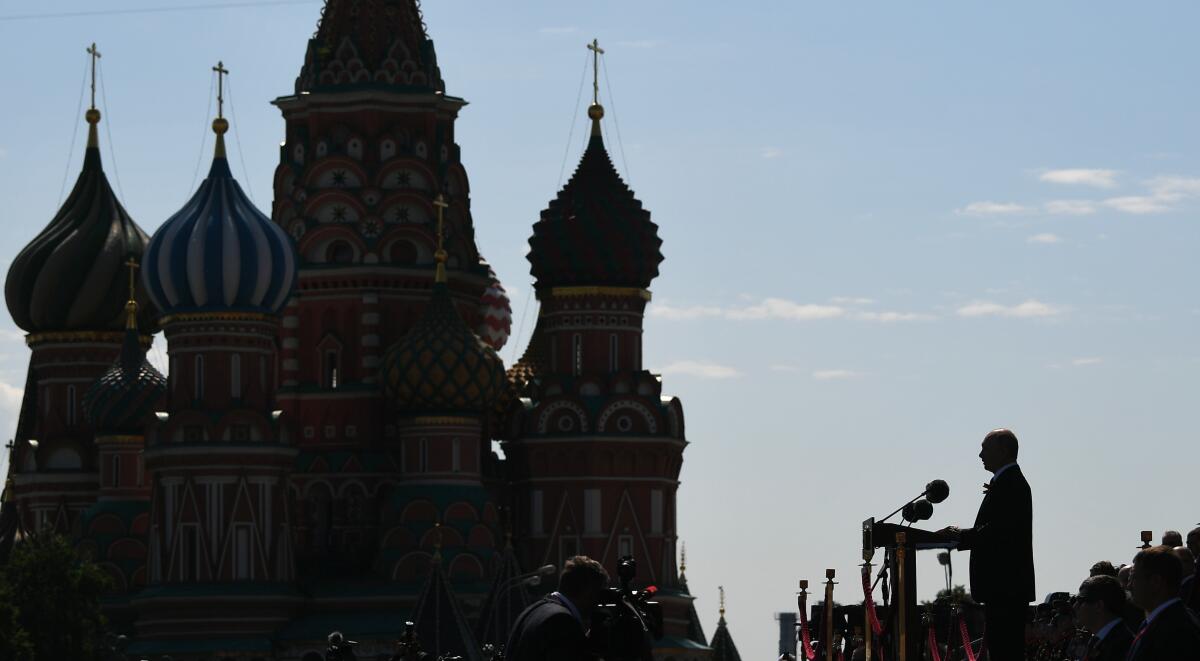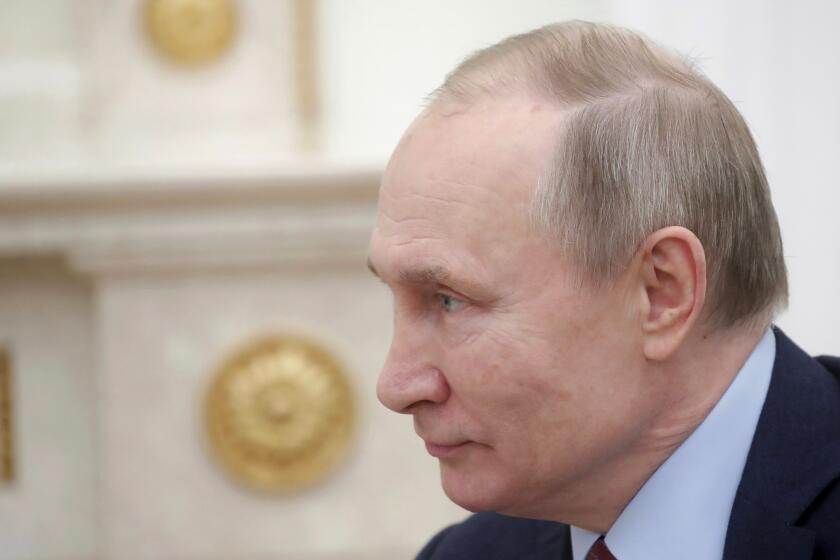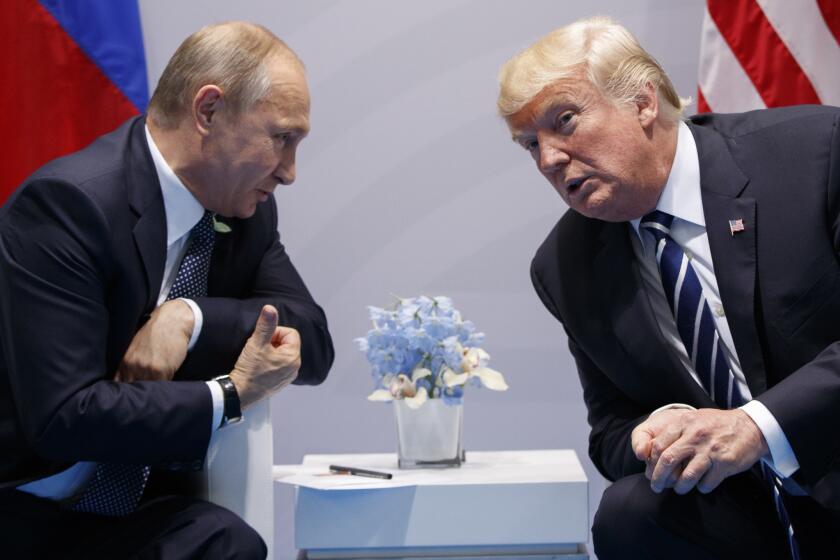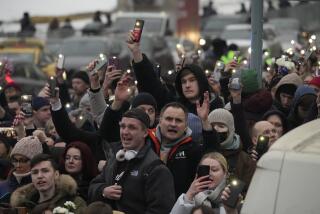Dangling goodies before voters, Russia opens polls on extending Putin’s rule

MOSCOW — Polls opened in Russia on Thursday for a weeklong vote on constitutional changes that would allow President Vladimir Putin to stay in power until 2036.
The vote on a slew of constitutional amendments, proposed by Putin in January, was initially scheduled for April 22, but was postponed because of the coronavirus. It was later rescheduled for July 1, with polling stations opening a week earlier and staying open for seven days in an effort to avoid crowds on the main voting day.
The proposed amendments include a change in the constitution that would allow the 67-year-old Putin, who has ruled Russia for more than two decades, to run for two more six-year terms after his current one expires in 2024. Other amendments deal with improving social benefits, define marriage as a union of a man and a woman, and redistribute executive powers within the government, strengthening the presidency.
The changes have already been approved by both houses of parliament, the country’s Constitutional Court and were signed into law by Putin. He insisted that they be put to a vote, even though it is not legally required, in what many see as an effort to put a veneer of democracy on the controversial changes.
Holding the vote in the middle of a pandemic has elicited public health concerns, because Russia is still reporting more than 7,000 new coronavirus cases daily and has more than 613,000 confirmed infections in all, the third-worst caseload in the world.
The Kremlin has repeatedly dismissed these concerns, saying that Russia was able to slow down the epidemic and assuring people that all necessary measures have been to ensure the safety of the voters.
Two weeks after their government was replaced, Russians remain unsure of the intentions of President Vladimir Putin.
Russian authorities seem to be pulling out all the stops to get people to vote. They’ve offered prizes ranging from gift certificates to cars and apartments. They’ve put up billboards and enlisted celebrities to urge a “yes” vote. They’ve encouraged state-run businesses such as hospitals and schools to pressure employees to register at the polls.
The country’s divided opposition, meanwhile, has failed to mobilize a significant protest. Instead, critics are raising questions about the vote’s legitimacy.
“Nothing will prevent the Kremlin from getting the formal result they need,” said former Kremlin speechwriter-turned-political analyst Abbas Gallyamov.
According to the Levada independent polling center, 44% of Russians said in late May they would vote “yes” and 32% would vote “no,” but only 25% of the “no” respondents planned to vote.
“Those who don’t support the amendments are not mobilized. [They are] demoralized and don’t know what to do,” said Denis Volkov, a sociologist with the Levada Center.
Intelligence officials have warned lawmakers that Russia is interfering in the 2020 election campaign to help Donald Trump get reelected, according to three officials familiar with the closed-door briefing.
The opposition has sent mixed signals. Its best-known figure, Alexei Navalny, has dismissed the vote as illegitimate, saying it doesn’t make sense to participate, even to vote against the amendments.
“Do you want to go and vote ‘no’? This strategy seems naive and a bit laughable to me. But if that’s what your heart wants, go and vote ‘no.’ The main thing is to not recognize [the vote’s legitimacy], because it’s a scam,” Navalny said on his YouTube channel.
Navalny’s team has backed a strike by election workers who don’t want to risk contracting the coronavirus at polling stations. But the strikers admit they haven’t gained much traction — an open letter has so far gathered a little over 500 signatures. In Moscow alone, there are about 2,000 workers, said Sergei Lebedev, who signed the letter, adding that he had expected more support.
Some Moscow politicians and journalists had launched a “No!” campaign against the amendments, but the virus lockdown prohibited rallies, and authorities have detained even single picketers.
News Alerts
Get breaking news, investigations, analysis and more signature journalism from the Los Angeles Times in your inbox.
You may occasionally receive promotional content from the Los Angeles Times.
Most of the operations took place online. Live YouTube rallies and hashtag campaigns on social media revealed that a significant number of people don’t support the amendments, said Yulia Galyamina, one of the founders of “No!”
The biggest problem that vote organizers face is turnout — luring people to the polls after weeks of coronavirus lockdowns and at a time when public support for Putin is dwindling: In April and May, his traditionally high approval ratings reached an all-time low of 59%, according to the Levada Center.
There also have been appeals to patriotism and even homophobia. One video used gay stereotypes to promote the message that, without the amendments, same-sex couples would be able to adopt children.
More to Read
Sign up for Essential California
The most important California stories and recommendations in your inbox every morning.
You may occasionally receive promotional content from the Los Angeles Times.












